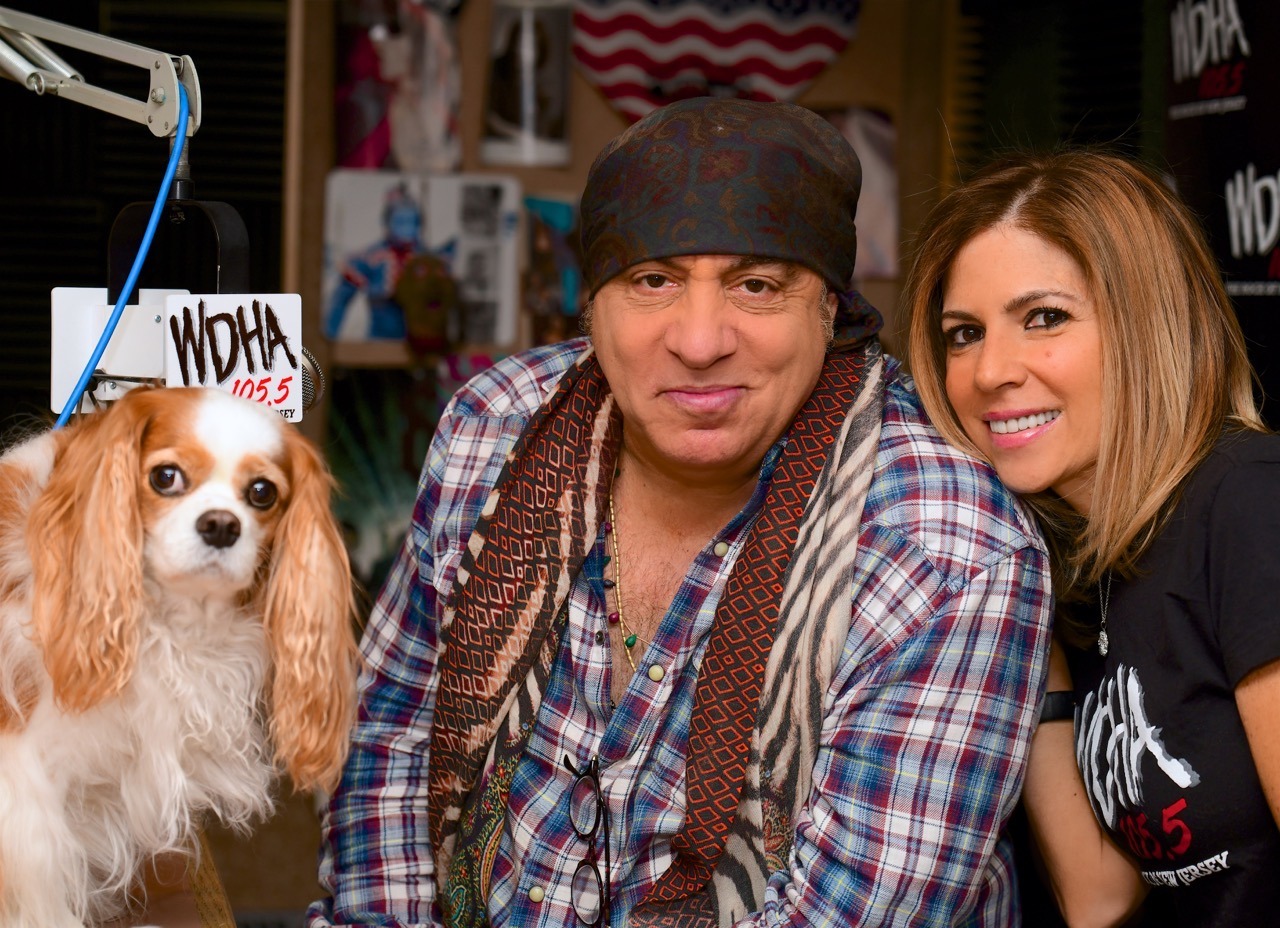
L-R: Edie, Little Steven, WDHA’s Terrie Carr
Today’s blog post headline couldn’t be more ominous or disheartening, especially considering its source. Steven Van Zandt is one of the bright lights of rock music. From his tenure and influence in the E Street Band to his television career on iconic shows like The Sopranos, Little Steven is well-known to program directors and air talent throughout the U.S. and the world.
He is also a guy who is not one who minces words. Steven speaks his mind whether it ruffles a few feathers – or not. In my encounters with Steven, I’ve seen him lob a well-calculated bomb or two, especially for tone-setting purposes.
True story. Way back in 2005, we were producing our 10th annual Jacobs Summit in conjunction with Radio & Records. That year, Erica Farber – R&R’s publisher in those days – opted to move her convention to Cleveland, Ohio – a long distance from Los Angeles, the site of most of these events.
I was looking for the perfect keynoter, hoping that proximity to New York City might help that quest. And that’s when my friend, Buzz Knight, suggested Little Steven for this role. Back then, Steven was in the quest for new affiliates for his Underground Garage radio show.
It didn’t take much to convince Steven to do the gig – an audience of several hundred programmers, music directors, general managers, and CEOs. That year, David Field and other industry leaders were in attendance. It was a great event, and a great opportunity for Steven to get in front of lots of decision makers.
Steven and entourage arrived the afternoon before this opening session slated for the next morning. Steven joined us for a run-through that afternoon in the ballroom where the Summit would take place. He explained he had recently made an appearance on one of the late night talk shows highlighted by an over-the-top entrance: Steven on a motorcycle, flanked by a bevvy of go-go girls. In fact, the scene was the last in a sizzle reel his camp sent us as an introduction to his keynote.
Steven turned to me, and suggested we hire a group of local girls who could accompany him after we played his video – a perfect transition. Except it was the night before his speech, and we were in Cleveland.
Lisa Riker, Jacobs Media’s business manager, was with us, and she immediately sprung into action. After contacting local dance studios, Lisa found one that promised to supply us with said girls. She then appropriated outfits and white go-go boots for the girls. To this day, I have no idea how it all came together so quickly.
Oh, and the catch. After introducing Little Steven flanked by the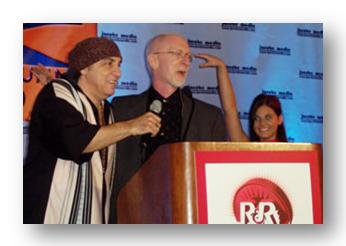 aforementioned girls, our keynoter thought it would be a nice touch for me to dance down the center aisle, go-go girls in tow, leaving the room so he could start his speech. Yes, that happened although I don’t believe recorded evidence exists of that truly embarrassing moment. Fortunately, the Summit happened just a year or two before smartphones seamlessly shot video, and for some reason, Art Vuolo was not in attendance to record it for posterity.
aforementioned girls, our keynoter thought it would be a nice touch for me to dance down the center aisle, go-go girls in tow, leaving the room so he could start his speech. Yes, that happened although I don’t believe recorded evidence exists of that truly embarrassing moment. Fortunately, the Summit happened just a year or two before smartphones seamlessly shot video, and for some reason, Art Vuolo was not in attendance to record it for posterity.
But that wasn’t the moment that shook the room up. After my dance number, I hustled back to a seat in the third row where I could witness Little Steven’s sermon from the mount. And to make sure he had everyone’s attention, he led off his speech with this catch question:
“When did all you radio program directors turn into a bunch of pussies?”
As they say, he had us with “pussies.”
The room went uncomfortably silent as Steven effectively made his case for more risk-taking in radio, warning the assembled radio vets that are playing it safe on the broadcast airwaves was the shortest path to oblivion. But it started with Steven focusing everyone’s attention from the jump with an opening serve that hit you across the forehead.
And last week, Steven whacked the Classic Rock family with a Louisville slugger blast. A story in Ultimate Classic Rock covered his recent appearance on the Club Random podcast hosted by Bill Maher. The glaring, click-baity headline:
“Why Steven Van Zandt Thinks Classic Rock ‘Is Going To Die'”

Bill Maher, Little Steven | Club Random | via YouTube
If you read beyond the 4-alarm headline, it’s easy to grasp Steven’s point. Of course, he acknowledges the mass popularity of the Classic Rock genre. After all, most of his and Bruce’s music falls under that umbrella.
His concern? The massively popular genre’s exposure will markedly decrease given the current environment in music. Steven points to anomalies like Taylor Swift and Beyoncé, sucking all the oxygen out of music meetings.
To cope with a rapidly changing business model, “musicians have upped their licensing fees in order to survive.” And when producers contemplate the songs they want to feature in their movies or TV series, they’ll be less and less likely to spend the big bucks on Classic Rock music that resonates with a mass audience. Thus, less and less exposure for music libraries that have garnered tons of exposure over the decades, especially on the radio.
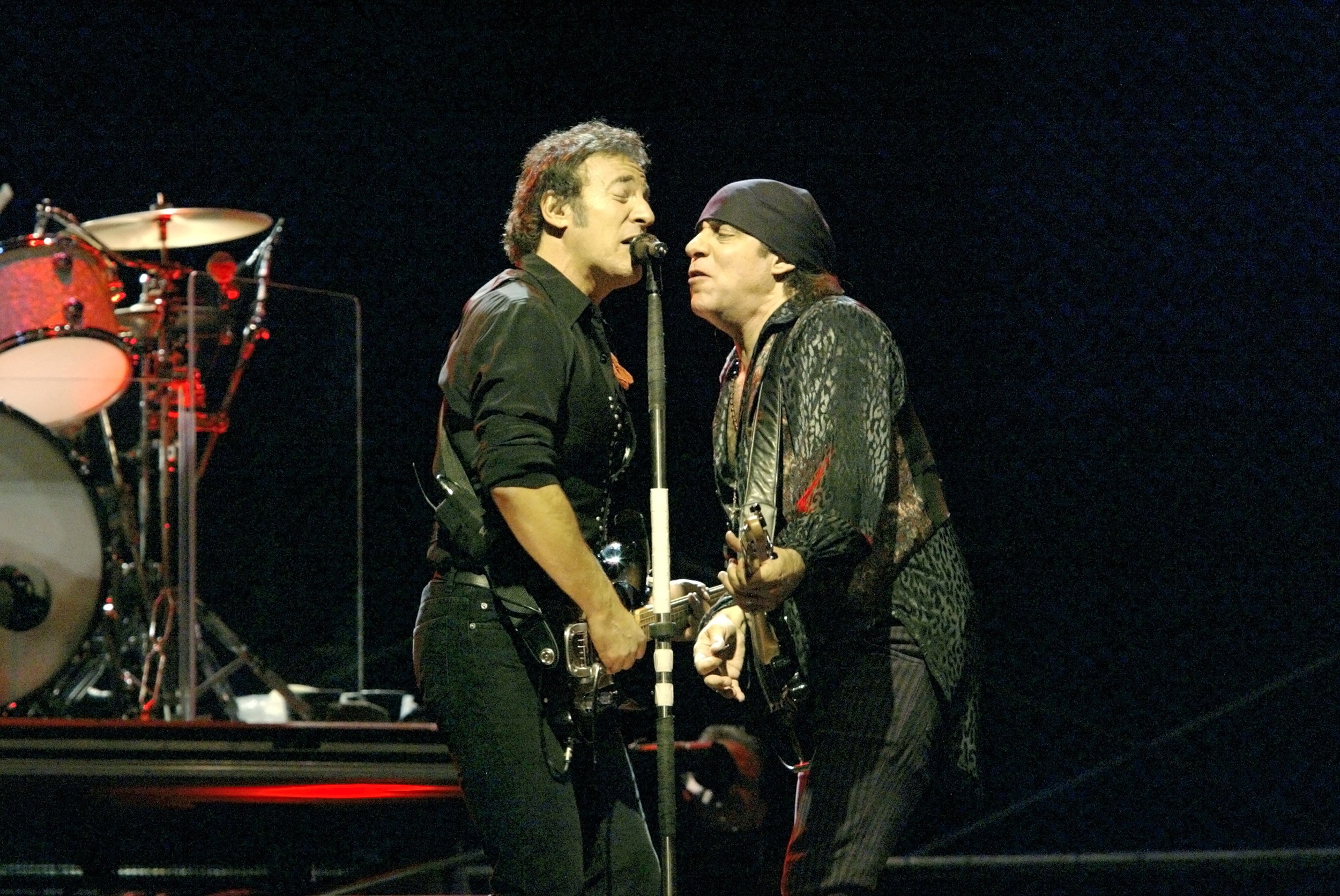 Is Little Steven right? Will Classic Rock atrophy because fewer filmmakers will want to pony up the big bucks on mega-hits from Led Zeppelin, the Stones, AC/DC, and yes, Bruce Springsteen?
Is Little Steven right? Will Classic Rock atrophy because fewer filmmakers will want to pony up the big bucks on mega-hits from Led Zeppelin, the Stones, AC/DC, and yes, Bruce Springsteen?
Just as he warned about FM radio becoming boring and predictable nearly two decades ago back in Cleveland, Steven believes that “10 years from now, 20 years from now, it’s going to be a problem because all this music is going to die if it’s not promoted and heard.” The answer, according to Little Steven, is legal reform around rising licensing fees.
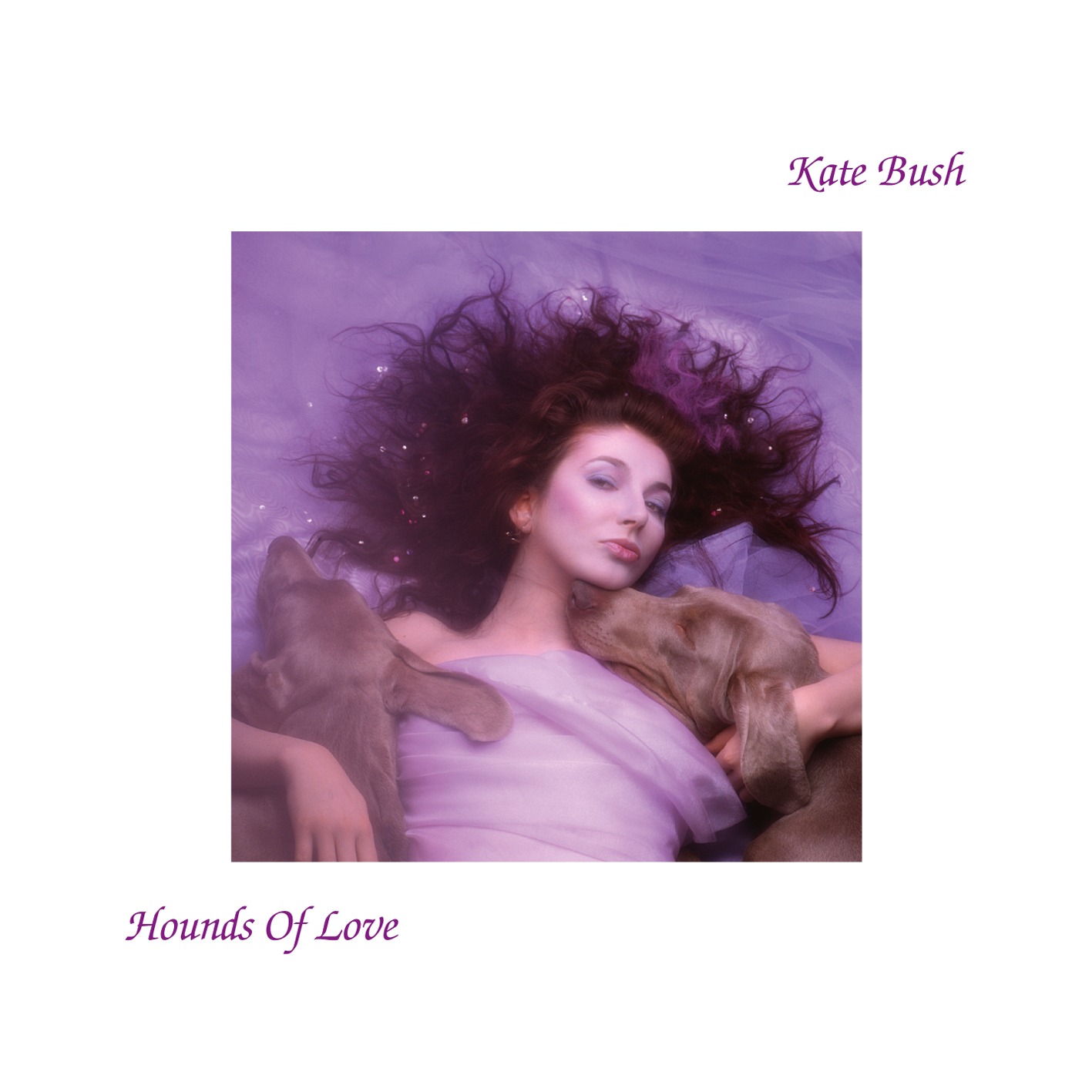 It’s hard to argue with the effect of television and streaming video on how the masses are exposed to “new music” – like Kate Bush’s “Running Up The Hill” which achieved more commercial success in 2022 than the song did when it was first released way back in the mid-’80s. Her classic song from the ’80s was prominently featured on the Netflix hit, Stranger Things, propelling it to a whole new audience via streaming video.
It’s hard to argue with the effect of television and streaming video on how the masses are exposed to “new music” – like Kate Bush’s “Running Up The Hill” which achieved more commercial success in 2022 than the song did when it was first released way back in the mid-’80s. Her classic song from the ’80s was prominently featured on the Netflix hit, Stranger Things, propelling it to a whole new audience via streaming video.
TV and movie resurrections of great songs to begin with continue to happen, giving these classics a second life. Think “Bohemian Rhapsody,” which had a starring role in Wayne’s World, a brilliant use of the classic anthem (with the help of an AMC Pacer).
But what about Classic Rock radio? Won’t this library of timeless rock continue to be highlighted on stations all over the U.S. – and the world? Currently, there are more than 600 of these stations across America alone, continuing to pound the Eagles, Queen, Aerosmith, and Bon Jovi.
A decade ag0, I wrote a blog post about exaggerated rumors of Classic Rock’s imminent extinction. In that amazing Showtime documentary about the Eagles, the late Glenn Frey explained the band’s eventual comeback tour – “Hell Freezes Over” – was essentially powered by high rotation airplay of the band on Classic Rock stations everywhere:
“When the band broke up, they kept playing our songs. All the time. It was like we never went away. We were still on the radio.”
But will mass appeal commercial radio continue to play Classic Rock from the ’70s and ’80s Steven Van Zandt worries will literally become a thing of the past?
Not necessarily. The trend on many Classic Rock stations began with the jettisoning of ’60s material – CCR, Hendrix, the Doors, and yes, the Beatles. And as stations continue to reset their sights on retaining as many 25-to-54 year-old ears as possible, the ’70s have diminished, too.
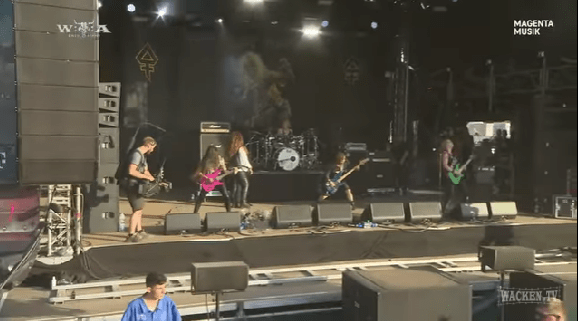
The Iron Maidens tribute band via YouTube
Will Classic Rock “evolve” into an ’80s/’90s format in the coming years? Does Little Steven’s prediction resonate in a world where broadcast radio stations scramble to become demographically relevant?
Another factor is that when the original rockers die off, they will continue to be replaced by high-performing tribute bands, thus giving the music wide exposure. Pictured above is the Iron Maidens, an all-female ensemble honoring the iconic metal band.
And don’t even suggest the concept of tribute bands to the tens of thousands of delighted concertgoers who are watching octogenarians Mick Jagger and Keith Richards continuing to strut their stuff. Even the reviews of jaded radio pros who have seen the band numerous time were blown away by their stellar performance at Met Life Stadium in East Rutherford, New Jersey, the other night.
And then there are the ads. While the impression songs are no doubt enhanced by appearing in cool TV shows and films, exposure in commercials has its own intrinsic value.
We’ve certainly seen that play out, especially during Super Bowl games, when many of the priciest ads on television include rock classics as their soundtracks.
And that brings us to Norman Greenbaum, a so-called one-hit wonder who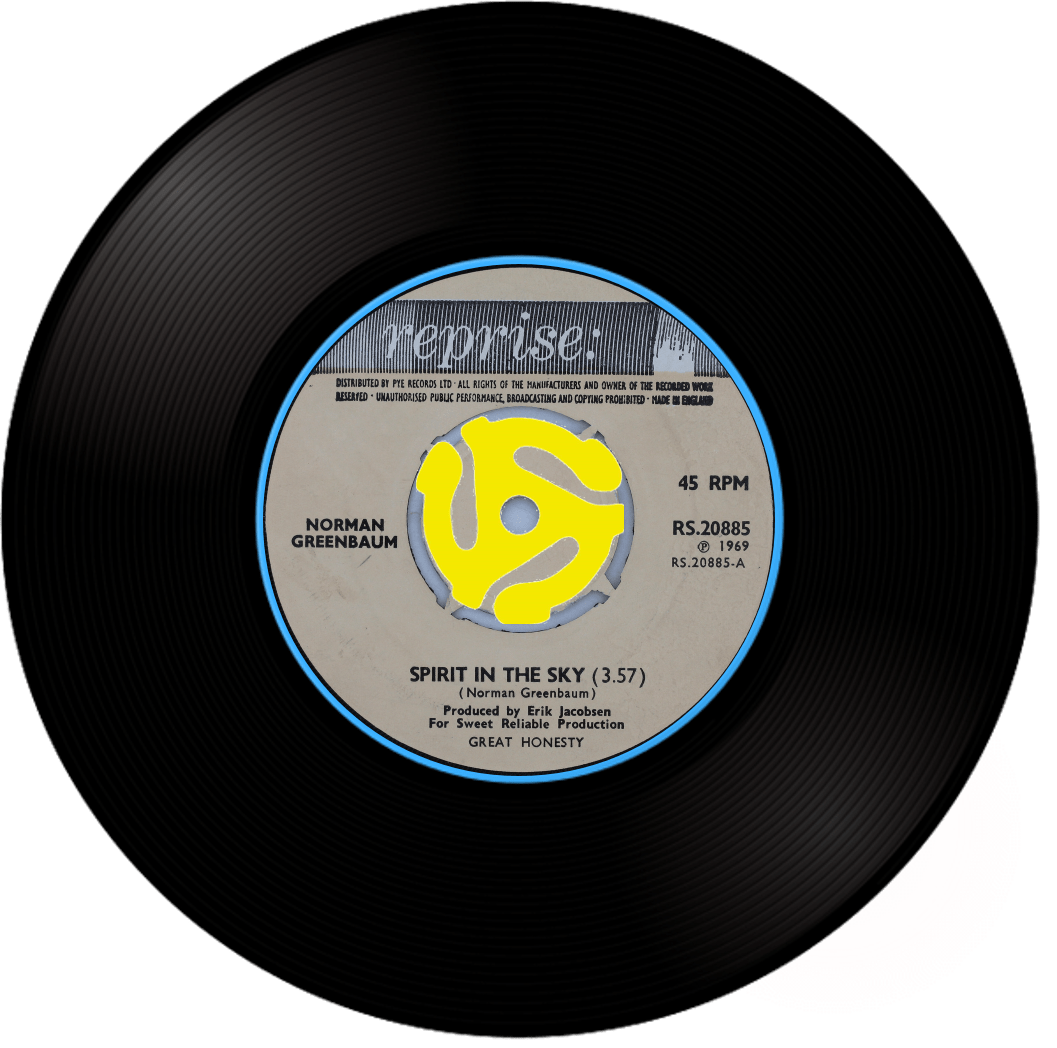 has enjoyed a lifetime income from 1960’s “Spirit in the Sky.” A recent article in Malden, Massachusetts’, Community Advocate heralds the town’s favorite son, 81 year-old Greenbaum.
has enjoyed a lifetime income from 1960’s “Spirit in the Sky.” A recent article in Malden, Massachusetts’, Community Advocate heralds the town’s favorite son, 81 year-old Greenbaum.
Managing editor Brett Peruzzi reports “Spirit” has made its way onto 65 movie soundtracks, numerous TV shows, and more than 30 commercials. It turns out the song even made a cameo at the 2022 Oscar awards’ “In Memoriam” tribute.
And recently, Norman Greenbaum’s rock anthem enjoyed a starring role in one of the best TV ads to feature “Spirit” to date. Xfinity’s new campaign, “Aviators,” cleverly uses “Spirit in the Sky” in an homage to endless youth, great Wi-Fi, VR goggles, and yes, to Classic Rock.
Little Steven, take Edie out for a walk and chill. Classic Rock is going to be OK.
Originally published by Jacobs Media








